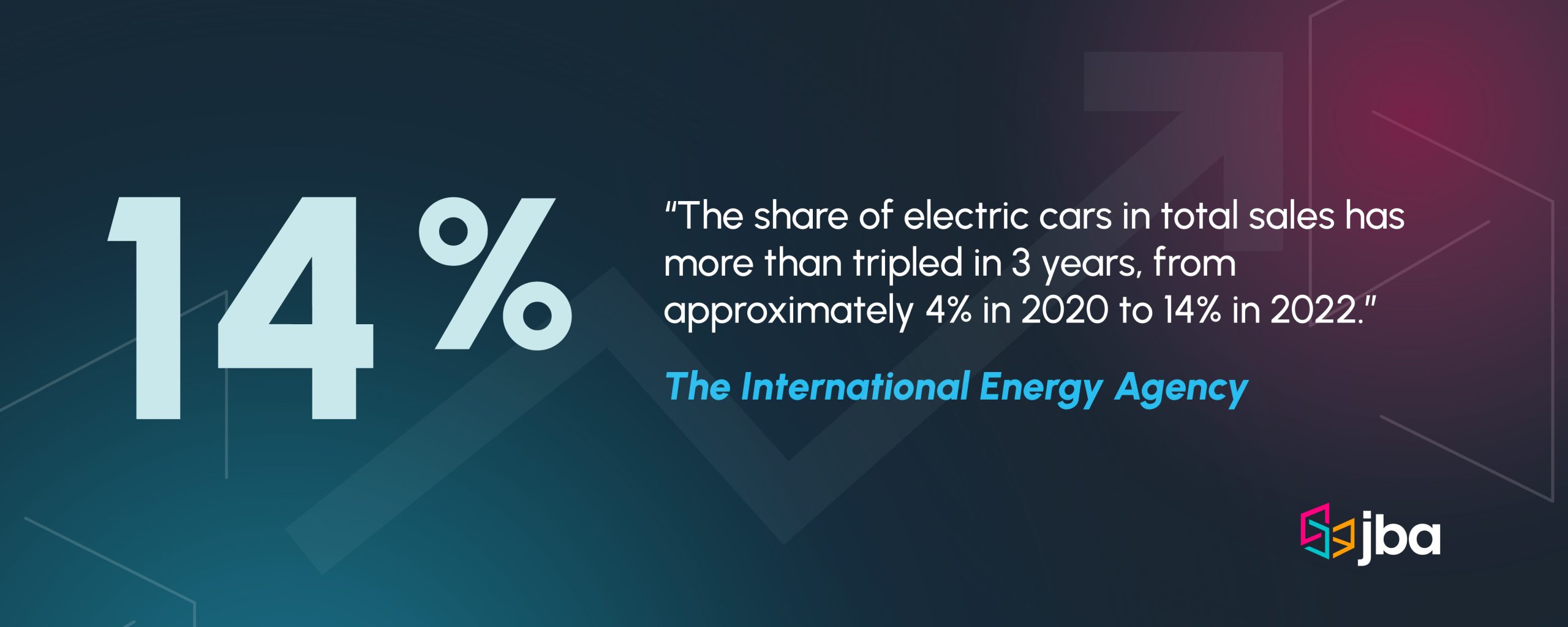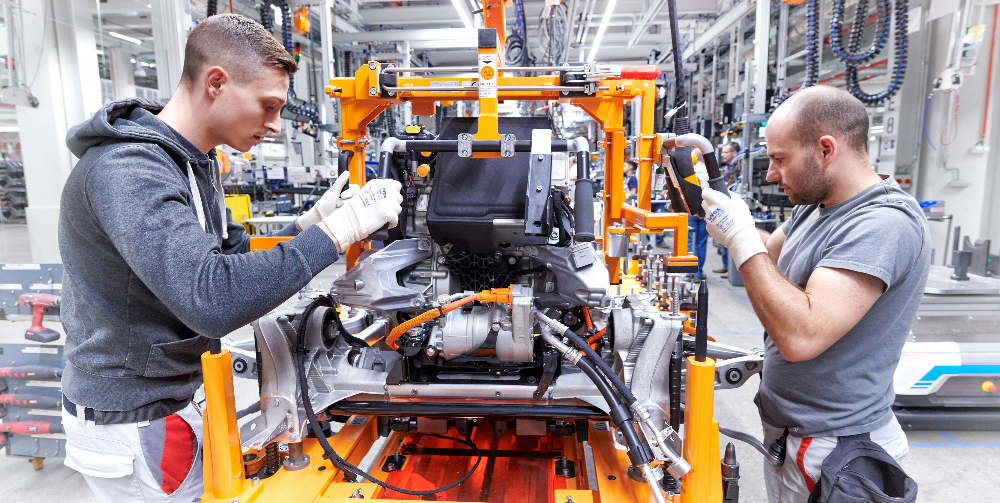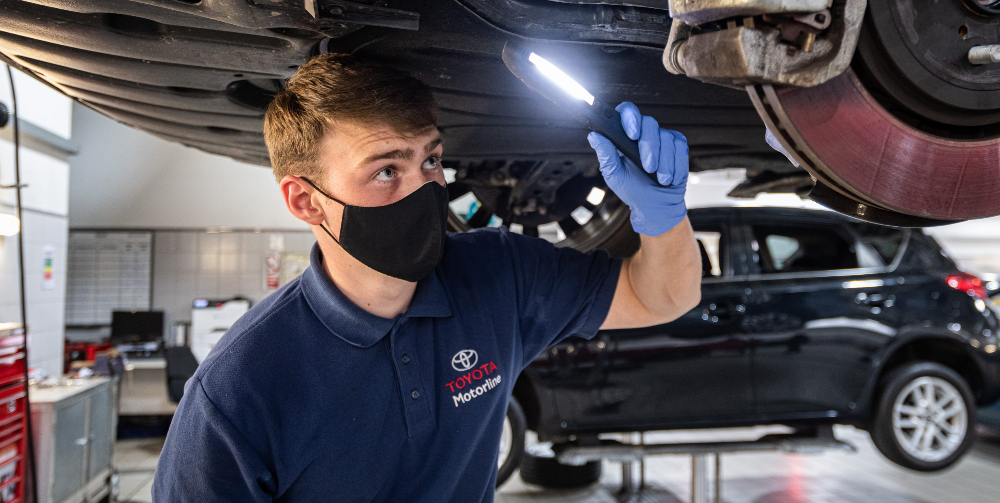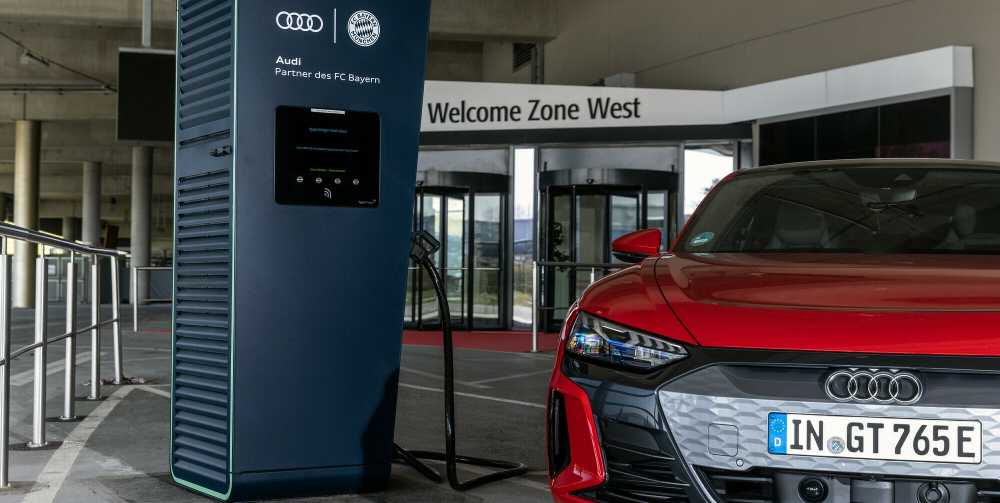Many people are still reluctant to make the switch to an electric vehicle, and this issue is compounded by a lack of electrical vehicle training.
Without adequate training, it leads to a scarcity of EV technicians who are responsible for maintaining and repairing EV’s so that they remain in good condition. Whilst the repair process is not necessarily more difficult, it does require a different skill set.
For a dealership, this means regardless of whether you choose to hire new technicians or to upskill existing ones, you need to invest in proper electrical vehicle training.
Demand for these cars is only increasing as the government has committed to stopping the sale of ICE vehicles by 2035. Whilst this might seem a few years away, car dealerships need to start preparing for the inevitable switch and they need the right people on hand to do so.
It’s important to plan ahead and start this training now, so that you can not only meet the changing demands of customers, but also position your dealership as forward-thinking and prepared for the future.
In this blog we’re exploring the need for electrical vehicle training and how this will benefit your team.
The Rise of Electric Vehicles
The global rise in electric vehicle (EV) sales has been nothing short of remarkable, highlighting a transformative shift in the automotive landscape.
According to findings published by IEA, sales of electric vehicles exceeded 10 million in 2022. The share of electric cars in total sales has more than tripled in 3 years, from approximately 4% in 2020 to 14% in 2022. Looking at 2023, over 2.3 million electric cars were sold in the first quarter, around 25% more than in the same period the year before.

This can be attributed to several factors propelling the heightened popularity of electric vehicles. Environmental consciousness and a growing emphasis on sustainable living have played pivotal roles in steering consumers towards cleaner transportation alternatives.
Governments and regulatory bodies globally are implementing policies and incentives that favour electric vehicles, such as tax credits, subsidies, and emission reduction targets.
Additionally, the advancements in EV technology, particularly in battery efficiency and charging infrastructure, have alleviated concerns about range anxiety and charging accessibility.
Major automakers are recognising the undeniable potential of electric vehicles and are making substantial investments in their production.
Tesla, in particular, has become synonymous with electric mobility, with its innovative and high-performance electric cars capturing a significant market share. Traditional automakers like Volkswagen, Ford, and BMW are also entering the electric vehicle arena with ambitious plans to expand their electric vehicle portfolios.
These strategic moves not only indicate a shift in consumer preferences but also signal a broader commitment within the automotive industry to transition towards sustainable and eco-friendly transportation solutions.

The Need for Skilled EV Technicians
As electrical vehicles continue to gain widespread acceptance, the demand for technicians with specialised training in handling EVs is also on the rise.
Electric vehicles pose unique challenges, particularly concerning the safety of mechanics who work with high-voltage components.
It is crucial to undergo proper training when dealing with these components to prevent unsafe practices. Failure to follow the correct safety protocols not only increases the likelihood of the vehicle requiring specialised repairs, but also increases the risk of severe, and in some cases, fatal injuries to the technician.
Recent research conducted by the Institute of the Motor Industry (IMI) reveals a significant gap in the availability of qualified technicians for electric vehicles. Despite an increase in EV training over the past year, the availability of qualified technicians remains inconsistent across the UK.
The findings examine the percentage of technicians with EV qualifications in relation to the total technician workforce in each UK local authority. Alarmingly, only 7 local authorities across England, Wales, Scotland, and Northern Ireland have 10% or more technicians qualified to work on electric vehicles.
Even more worrying is that over 150 local authorities have less than 2% of technicians with the necessary qualifications, a tiny fraction of their overall workforce.
These statistics demonstrate the need for electrical vehicle training to bridge the gap between the number of qualified technicians and the rising demand for electric vehicles.
Job Opportunities in the EV Industry
As demand for electric vehicles continues to surge globally, the industry is evolving to provide employment opportunities that cater to various skill sets and professional interests.
This has created a spectrum of career possibilities. Beyond traditional roles in manufacturing and engineering, professionals can explore diverse avenues such as:
- Research and development
- Software development for EV systems
- Battery technology
- Charging infrastructure management
- Sustainable urban planning
Choosing a career in electric vehicle technology aligns with both environmental sustainability and financial rewards.
As electric vehicles gain prominence in the automotive market, professionals in the industry enjoy competitive salaries reflective of their specialised skills.
These skills are also transferable to other roles within the broader clean energy sector, opening doors to exciting prospects in renewable energy projects.
Importance of Proper Training
As the price gap between electric cars and traditional internal combustion engine (ICE) vehicles gradually reduces, the consideration of professional EV servicing becomes increasingly important in the decision-making process for transitioning to all-electric vehicles.
However, there is a growing worry that dealerships and commercial fleet operators lack a sufficient number of professionally qualified technicians to meet the rapidly expanding surge in EV sales.
Since the proliferation of electric vehicles in global markets, dealerships and fleet operators have been upskilling their technicians to meet the growing demand. This is absolutely necessary as The Department of Transport requires repair and maintenance facilities and staff to be fully qualified to maintain high industry standards.
This ensures customers have the confidence and reassurance that their electric or hybrid vehicles are maintained in the best condition.
Training technicians requires both an investment and a strong commitment to making operators, private EV owners, and potential switchers feel confident about the quality of after sales service. In 2022, the Institute of the Motor Industry (IMI) asked for more government support and employer funding for EV skills training due to the urgent need for skilled EV technicians.
Some parts of the UK have already begun preparing for the surge, including local training centers such as Edinburgh College and the Dundee and Angus College as they offer EV courses including a Level 3 Award in Electric/Hybrid Vehicle System Repair and Replacement – all to support the high demand for skilled technicians.

Key Components of EV Training
Comprehensive electrical vehicle (EV) training is essential for equipping learners with the knowledge and skills necessary to service EVs whilst also prioritising their safety.
Here are key components that a robust training program should include:
1. Identification of Various EV Types
Trainees should learn to distinguish between different types of electric vehicles, such as Battery Electric Vehicles (BEVs), Hybrid Electric Vehicles (HEVs), and Plug-in Hybrid Electric Vehicles (PHEVs). Understanding the distinctive features and components of each type is crucial for effective diagnosis and maintenance.
2. Hazard Recognition and Safety Protocols
A key aspect of EV training involves the identification of hazards and risks associated with EV maintenance. Technicians must be adept at recognising potential dangers and equipped with safety protocols to mitigate risks. This includes understanding the risks of electric shocks and implementing precautionary measures.
3. Battery Handling and Replacement
Technicians need to learn safe procedures for de-powering EVs and replacing batteries. This involves understanding the intricacies of high-voltage systems and implementing precautions to prevent accidents or injuries during battery replacement procedures.
4. Equipment Identification
Professionals should be capable of identifying and understanding various pieces of equipment associated with EVs, such as HEV cables, HEV batteries, and auxiliary batteries. This is vital for accurate diagnosis and efficient repairs.
5. Voltage Checking on Auxiliary Batteries
An integral skill is the ability to check the voltage on auxiliary batteries. This ensures that technicians can assess the health and functionality of the auxiliary battery, a critical component in the overall performance of electric vehicles.
6. Power Source Disabling
Trainees should learn effective methods for disabling power sources in electric vehicles safely. This knowledge is essential for creating a secure working environment during maintenance or repair tasks.
7. Comprehensive Understanding of Safety Practices
An overarching goal of EV training is to instill a comprehensive understanding of safety practices when working with all types of equipment associated with electric vehicles. This includes protocols for handling tools, interacting with high-voltage systems, and creating a secure workspace.
Electrical Vehicle Training: The Growing Demand for EV Technicians
Training your team in electric vehicle technology is crucial to meet the growing demand for electric vehicles. As the world shifts toward cleaner transportation, the need for proper training becomes even more vital.
By ensuring your team is well-prepared, you instill confidence in customers considering the switch to electric vehicles. This training reassures them that maintenance and repair concerns are effectively addressed, alleviating any anxiety associated with keeping an electric vehicle in good working condition.
At JBA, we work directly with your team to understand your unique challenges and pain points. We start with the problem and work backwards, ensuring our training solutions are tailored to your needs. To find out more, get in touch.
